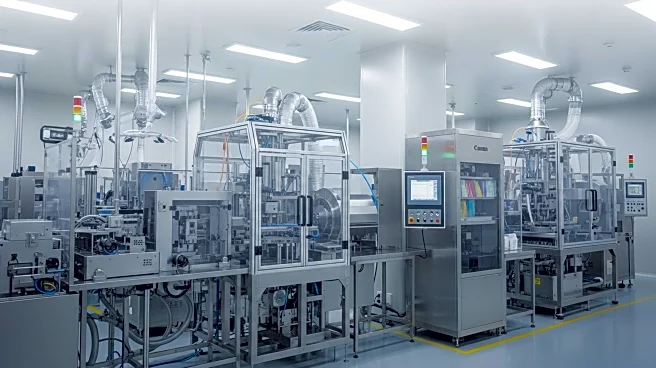What's Happening?
The FDA has issued a warning letter to Johnson & Johnson's subsidiary, Janssen Vaccines, citing significant violations at its production plant in South Korea. The letter highlights lapses in quality control and failure to adhere to good manufacturing practices, particularly regarding defective vial stoppers. The facility did not adequately investigate discrepancies or escalate complaints to appropriate authorities. The FDA demands a comprehensive assessment of the plant's complaint investigation system and a retrospective review of complaints over the past three years. J&J has responded, emphasizing its commitment to quality and safety, while noting that the site no longer produces vaccines.
Why It's Important?
This warning from the FDA underscores the critical importance of maintaining rigorous quality control standards in pharmaceutical manufacturing, which directly impacts product safety and efficacy. The violations at J&J's South Korean plant could have broader implications for the company's reputation and regulatory compliance across its global operations. Ensuring adherence to manufacturing standards is vital for public health and trust in pharmaceutical products. The FDA's actions may prompt other companies to review their practices to avoid similar scrutiny, potentially influencing industry-wide standards and practices.
What's Next?
Johnson & Johnson is expected to address the FDA's concerns promptly, potentially implementing corrective measures to improve its quality control processes. The company may conduct internal audits and enhance training for staff to prevent future violations. The FDA will likely monitor J&J's compliance closely, and further regulatory actions could follow if issues are not resolved satisfactorily. The pharmaceutical industry may see increased regulatory oversight, prompting companies to strengthen their compliance frameworks.
Beyond the Headlines
The FDA's warning letter highlights the ongoing challenges in global pharmaceutical manufacturing, where maintaining consistent quality across international sites can be complex. This situation may lead to discussions about the need for more stringent international regulatory standards and cooperation to ensure product safety. The incident also raises questions about corporate accountability and transparency in addressing manufacturing issues, which could influence consumer trust and industry practices.









